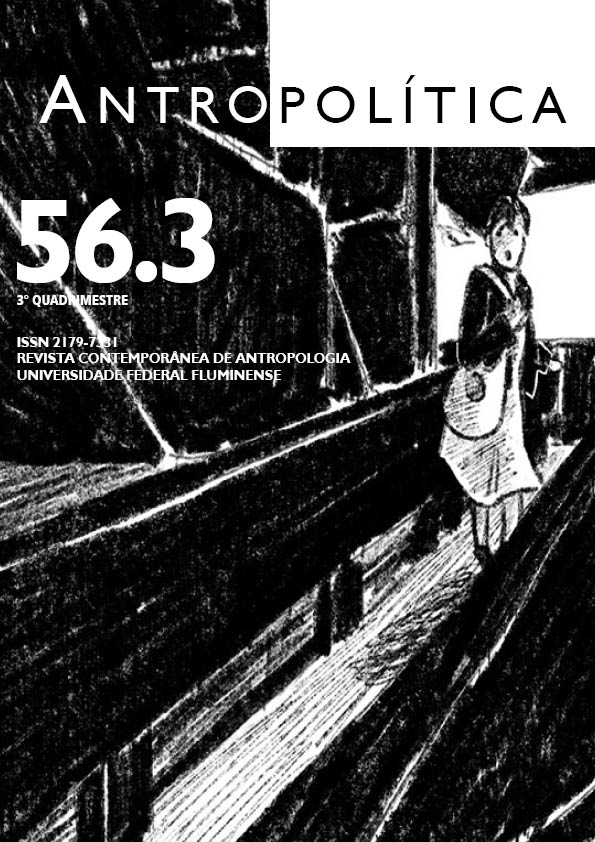Da agressão colonial ao Estado Islâmico: as origens das rivalidades carismáticas no Iraque pós-baathista (1991-2019)
DOI:
https://doi.org/10.22409/antropolitica2024.v56.i3.a64962Palavras-chave:
Iraque, Carisma religioso e político, Estudos pós-coloniais, Islã político.Resumo
Este artigo examina a formação do discurso religioso nas lutas pelo carisma político-religioso após o colapso do Estado iraquiano após a invasão da Guerra do Golfo em 1991. Ele traça como esses discursos evoluíram como resultado de transformações sociais em guerras consecutivas desencadeadas por intervenções dos EUA. A hipótese central argumenta que, ao contrário da estabilização nacionalista obtida por meio do monopólio do carisma sob o Baathismo, que possibilitou a criação do moderno Estado-nação iraquiano, a rivalidade pelo carisma religioso, moldada pelo sectarismo, não conseguiu restaurar a unidade nacional após a invasão. Esse fracasso se deve principalmente à extrema polarização dos discursos religiosos xiitas e sunitas durante a guerra, exacerbada pela destruição dos mecanismos seculares que antes mantinham a ordem inter-religiosa. Esses mecanismos, incorporados pela administração iraquiana, foram enfraquecidos por décadas de guerra colonial e embargo desde 1991. O artigo também explora como o conflito em si, e não as diferenças religiosas, tornou-se uma força motriz por trás de novos carismas religiosos. Ao revisitar as transformações dentro do Partido Baath e o discurso político de Saddam Hussein, o estudo destaca o papel da agressão colonial na formação do sectarismo iraquiano. Em última análise, essa análise desafia a narrativa dominante da divisão religiosa, ligando-a, em vez disso, à história mais ampla da intervenção externa e seu impacto duradouro.
Downloads
Downloads
Publicado
Edição
Secção
Licença
Direitos de Autor (c) 2024 Montassir Sakhi

Este trabalho encontra-se publicado com a Licença Internacional Creative Commons Atribuição 4.0.
O conteúdo da revista Antropolítica, em sua totalidade, está licenciado sob uma Licença Creative Commons de atribuição CC-BY (http://creativecommons.org/licenses/by/4.0/deed.pt).
De acordo com a licença os seguintes direitos são concedidos:
- Compartilhar – copiar e redistribuir o material em qualquer suporte ou formato;
- Adaptar – remixar, transformar, e criar a partir do material para qualquer fim, mesmo que comercial;
- O licenciante não pode revogar estes direitos desde que você respeite os termos da licença.
De acordo com os termos seguintes:
- Atribuição – Você deve informar o crédito adequado, fornecer um link para a licença e indicar se alterações foram feitas. Você deve fazê-lo em qualquer maneira razoável, mas de modo algo que sugira que o licenciante o apoia ou aprova seu uso;
- Sem restrições adicionais — Você não pode aplicar termos jurídicos ou medidas de caráter tecnológico que restrinjam legalmente outros de fazerem algo que a licença permita.


